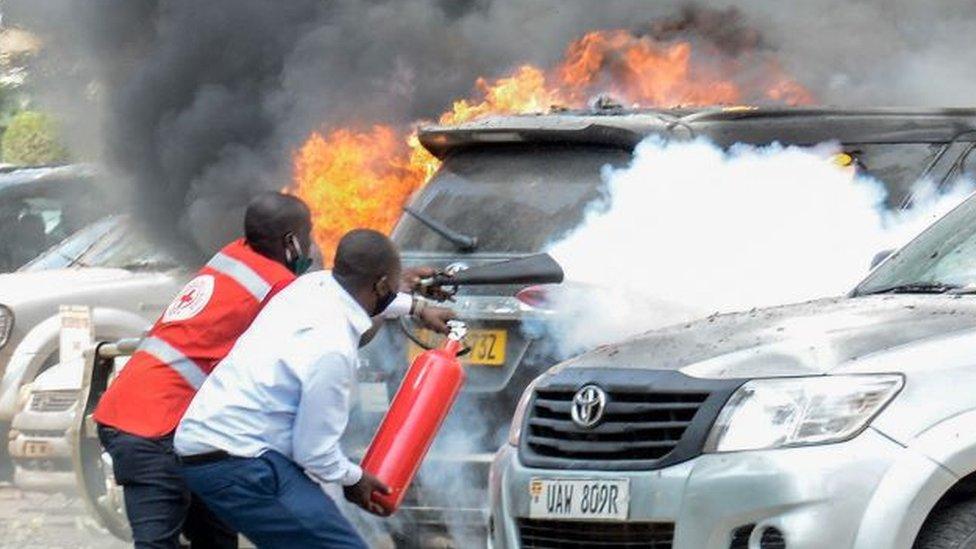Uganda school attack: 'Gospel songs interrupted by screaming'
- Published
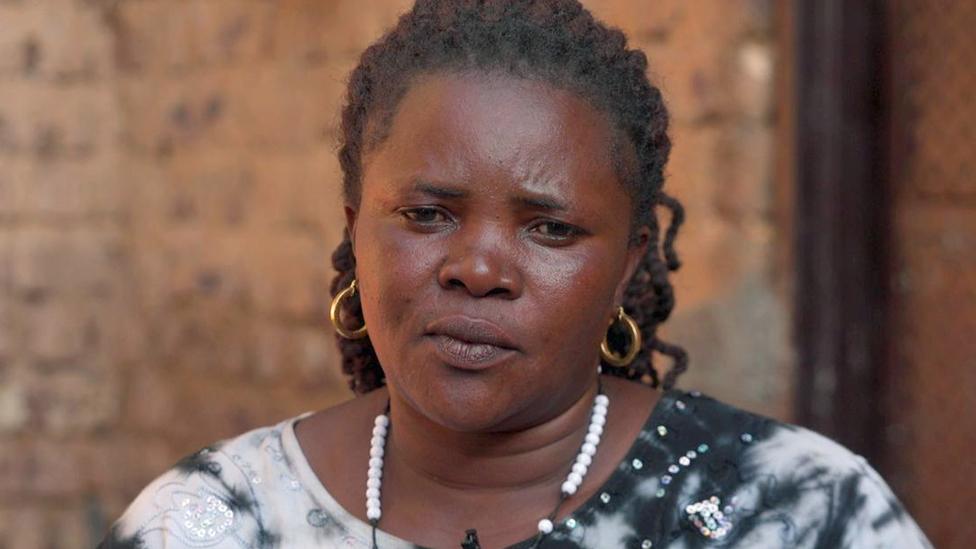
Mary Masika, who lives opposite the school says she would often hear the students singing before bedtime
Pupils in Uganda were singing gospel songs before an attack by suspected Islamist militants on Friday, a woman who lives opposite the school says.
"Then I heard screaming," Mary Masika told the BBC. The vicious attack in Mpondwe left about 40 people dead.
Islamic State-linked militants have been blamed for the attack.
The Allied Democratic Forces (ADF) was created in the 1990s and took up arms against President Yoweri Museveni, alleging persecution of Muslims.
They are now largely based in neighbouring Democratic Republic of Congo.
The Mpondwe Lhubiriha Secondary School attacked on Friday is close to the border.
Ms Masika says she and other residents have been left terrified by the attack which lasted about 90 minutes.
Warning: Contains details some readers may find distressing
"I have been unable to eat or sleep since then," she told the BBC in Swahili.
The students usually sing before bedtime - and at first she and her daughter thought the noise that interrupted their songs at around 22:00 (20:00 GMT) suggested that they were having a bit of fun.
But it soon became clear that something horrific was under way at the school, which had around 60 boarders living in a small compound.
ADF rebels had entered dormitories, setting fire to them and using machetes to kill and maim students.
One family in Mpondwe held the funerals on Sunday for a father and son killed in the attack - 47-year-old security guard Elphanas Mbusa and 17-year-old Masereka Elton.
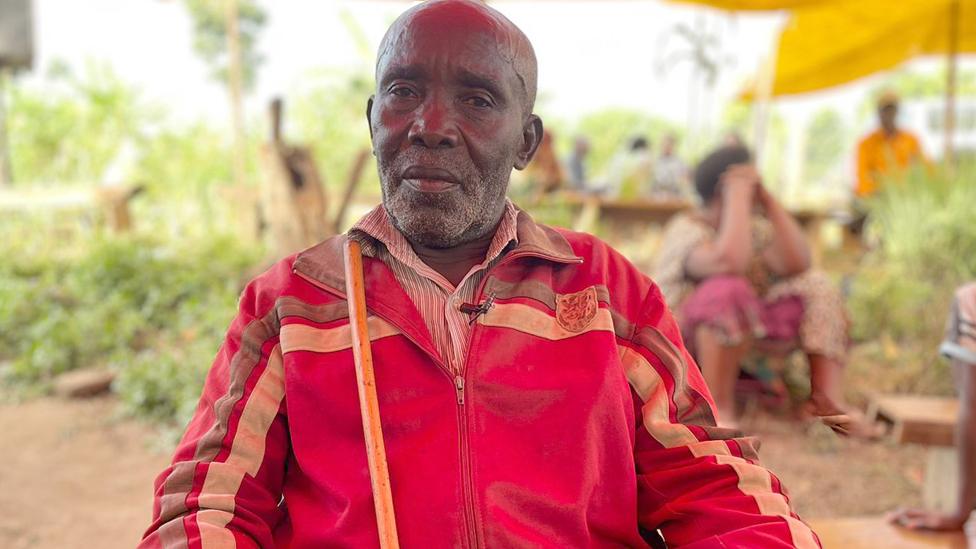
Hurubana Kimadi Onesmus lost his son, a school watchman, and at least one of his grandsons - it is not clear if the other has been kidnapped
Their other son, 15-year-old Brian Muhindo who was also attending the school, is missing. They do not know if he is among the six boys kidnapped or one of those whose bodies cannot be identified because they have been so badly burned.
Hurubana Kimadi Onesmus told the BBC he found it difficult to understand how the attackers were able to infiltrate the school where his son, the security guard, worked and where his grandsons were studying.
"There is a very heavy military presence in the area," the 69-year-old said.
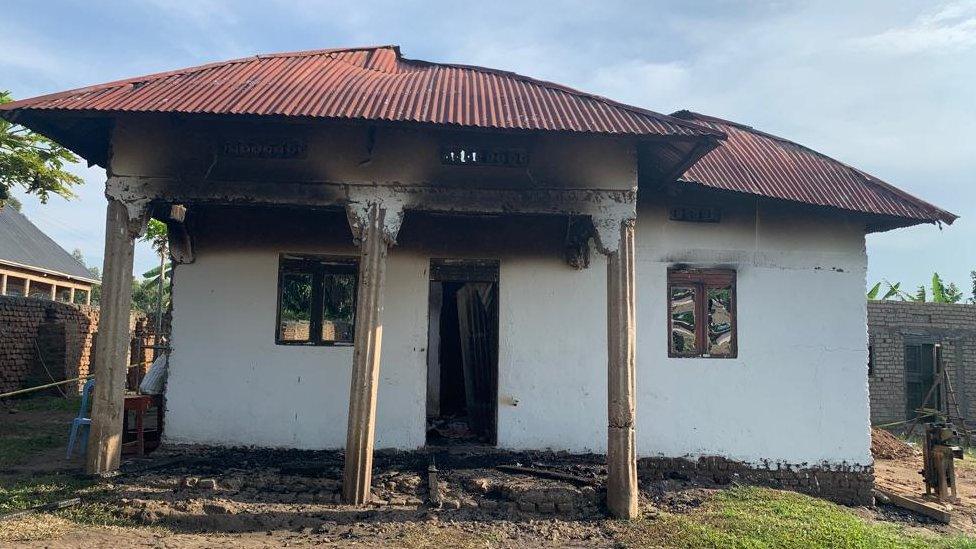
The BBC team were given a few minutes to photograph the scene at school in Mpondwe
Now there is a lot of security at the school - and the BBC team was given only a few minutes to take some photos of the burnt buildings.
It was a devastating and upsetting scene.
Lots of dried blood is still on the ground outside the girls' dormitory - they had been attacked with machetes and others shot dead as they ran away.
The boys' dormitory had been locked - they had either refused to open it to the rebels or they were locked inside by them. The militants poured fuel on the building and set it alight.
Inside, the smell of death is unmistakeable - beds have been reduced to wire mesh with pieces of flesh still stuck to them.
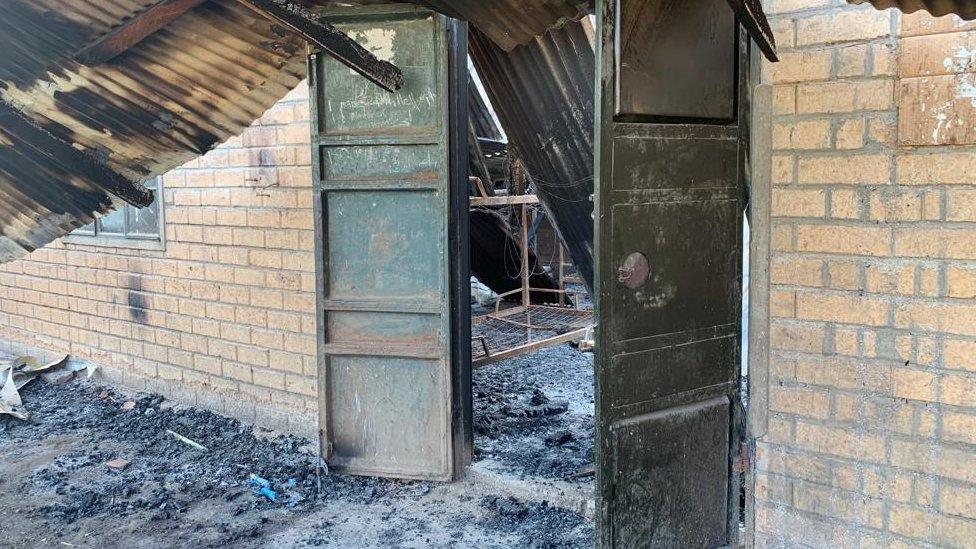
It is not clear if the doors of the boys' dormitory was locked by those inside or the rebels
Ms Masika said towards the end of the attack, at around 23:30, she heard one of the assailants talking at her gate and asking a fellow fighter if "the job was done".
They were talking in Swahili - the lingua franca in the region - and afterwards began shouting "Allahu Akbar", meaning "God is greatest".
She said after these chants one of them added: "We have succeeded in destabilising Museveni's country."
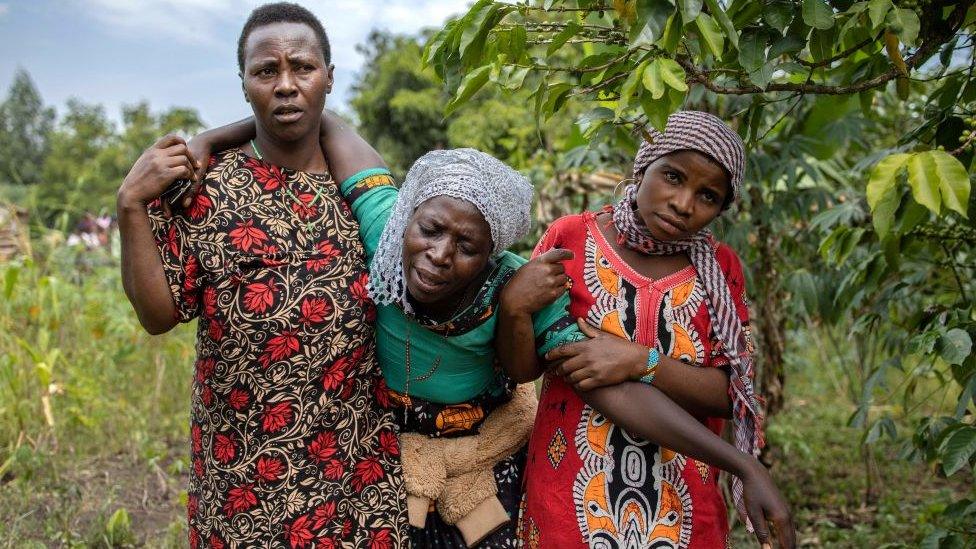
Several funerals were held on Sunday for those killed in the attack
In response, President Museveni vowed to send more troops to Rwenzori Mountains, which are along the border between Uganda and the DR Congo, saying: "Their action... the desperate, cowardly, terrorist action... will not save them."
The area around Mpondwe seems to be a mix of Christians and Muslims. Some of those attending the funerals on Sunday were dressed in traditional Muslim attire.
Other funerals for the pupils killed in the attack were held in villages across the region, with most people dumbfounded and pained by the brutality of the assault.
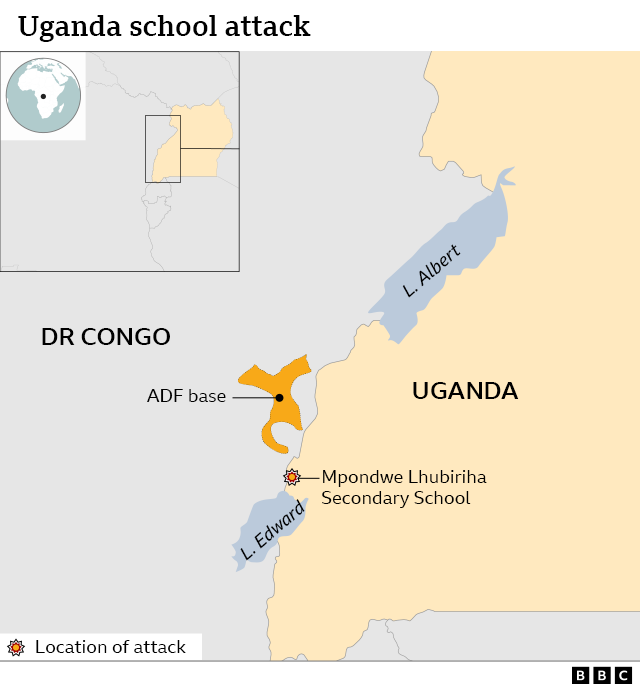

Related topics
- Published14 June 2021
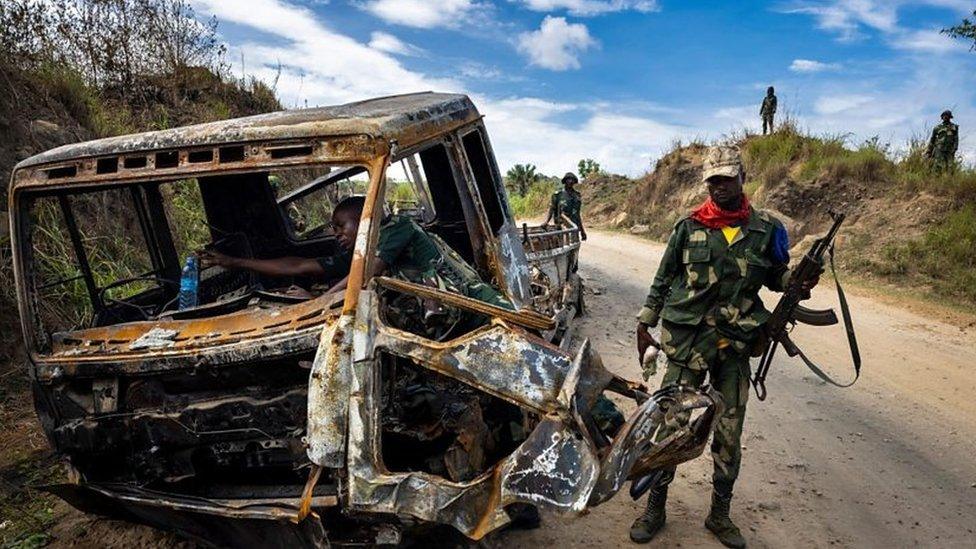
- Published24 November 2021
